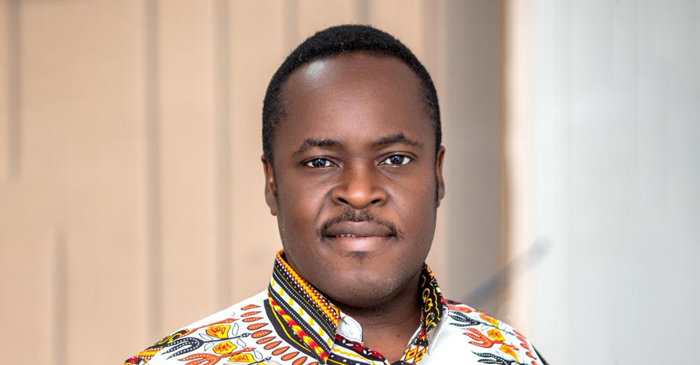Fasting involves refraining from eating and drinking for a period to focus your thoughts on God. The Bible contains about 77 references to fasting, which include partial, absolute, short, and extended periods. It is never an outdated practice, since it is one of the few activities that can nourish the body, spirit, and soul. Fasting is a vital element in our walk with God. If Jesus made reference to the Pharisees who fasted twice a week and the disciples of John the Baptist, then those newly born of God cannot do any less (Matthew 9:15; Mark 2:19; Luke 18:12). Sadly, some individuals also compete with themselves to see who can fast the longest.
However, many misconceptions exist about fasting from the Old Testament era to Jesus’ time and even today. It is important to note that biblical fasting has no standard measure in terms of type, duration, or corresponding results. For example, a three-day dry fast is not a fixed dosage for addressing a particular need or achieving a specific level of spirituality. The Bible records some individuals, like Esther and Ezra, who fasted without food and water for three days, and others, such as Moses and Jesus Christ, who did so for forty days. In between these durations are seven days by David and twenty-one days by Daniel, to name a few. Therefore, the choice of a specific type and duration relies primarily on the divine inspiration that the individual or group receives from God to achieve their goals.
Fasting is neither gender-sensitive nor age-sensitive. Therefore, Esther’s fasting was not inferior to Daniel’s or Nehemiah’s. Children are also not exempt from the call to fast (2 Chronicles 20:3). Luke 2:36–37 also suggests that Prophetess Anna was involved in fasting even when she was 84 years old. Fasting is not a gift of the Spirit, so some cannot argue that they were not blessed with it. It is a strenuous spiritual exercise that builds one’s spiritual muscles and improves a person’s overall health, though not without agitation from the body.
Appearing sanctimonious and Spirit-filled with suggestive gestures of holiness is also frowned upon by God, especially during days of fasting when the more significant issues of faith are disregarded. Jesus advised, “Moreover, when you fast, do not be like the hypocrites, with a sad countenance, for they disfigure their faces so they may appear to be fasting to men. Assuredly, I say to you, they have their reward. But you, when you fast, anoint your head and wash your face, so that you do not appear to men to be fasting, but to your Father who is in the secret place; and your Father who sees in secret will reward you openly” (Matthew 6:16–18). The Lord introduced two types of fasting with their associated rewards from humans or God, but left the choice to us. Before Christ’s admonition, God had queried Israel through the Prophet Isaiah, asking, “…Is this the kind of fasting I have chosen…?” (Isaiah 58:5). Therefore, this article aims to explore the kind of fast that receives Heaven’s attention. I have introduced the term “Smart Fasting” to signify that kind of fast the triune God requires from all whose objective is to attract and capture His attention for every divine exchange to be seamless.
In management, hard work centres on effort and persistence, while smart work focuses on efficiency, strategy, and achieving optimal results with less effort. The outcomes of smart work may include a more efficient method, a higher quality product, or faster delivery times. “Smart Fasting” for this write-up can, therefore, be defined as giving up eating and drinking for a period in the manner prescribed by God while focusing your thoughts on Him. There are many reasons why people embark upon fasting beyond healthy life considerations, although some have made it their lifestyle. Some fast for repentance, expecting God to pardon their transgressions, while others fast to seek God’s guidance on specific issues (1 Samuel 7:3–6; Acts 13:2). Sometimes, believers fast in search of divine healing from ailments or for God to help them break through difficult spiritual obstacles. Others also fast in preparation for special tasks God assigns them (2 Samuel 12:14–16; Matthew 4). Fasting is not a shortcut to accessing what is outside of God’s purposes for individuals or communities. It cannot be used to twist God’s hand to do what He is unwilling to do at any given time. Specialising, therefore, in fasting for personal needs and breakthroughs alone as a Christian is not the way to go. Christians are expected to have a good mix of the different purposes of fasting so that malnourished and disenchanted nominal Christians are reduced to the barest minimum.
Regardless of the motivation, fasting is never easy because no one truly gets used to it. Its impact on the body is always felt, no matter how often or how experienced individuals become. I will never forget my first attempt at a 3-day dry fast as a teenager in the 80s. It was inspired by a prophecy from a Deacon during an evening service, and by the end of the first day, I felt as though my spirit had escaped my body because I couldn’t even respond appropriately when called. I was rescued with a cup of porridge because my siblings were unsure of what was happening to me. After taking the first two spoonfuls, I told them I wanted to continue because my goal was to make a list of everyone who could complete it. Four decades later, despite all the lengthy periods of personal and group fasting regimens, I don’t think I have built up any immunity, as my body still complains, even if only for a day.
Believers must focus on obtaining the maximum benefit and rewards from fasting rather than merely pleasing others or gratifying themselves. God cares deeply about His children receiving optimal attention from His throne of grace during any fasting regime. To clarify this, He spoke through Isaiah when Israel, at one point, misunderstood the true significance of waiting on Him through fasting and prayer. Although they seemed to have understood the expectations of humans, likely gaining social rewards, they were gravely mistaken and failed to impress God through their extended fasts. This article explores what the triune God expects from His children whenever they are inspired to fast for His attention.
Below are factors to consider for making every fasting exercise effective, which this write-up calls “Smart Fasting.”
- Pursue Justice:
Easton’s Bible Dictionary defines justice as giving everyone what is due. God is just and expects all His children to pursue justice continuously. Throughout Israel’s history, particularly in the Southern Kingdom of Judah, there was a significant social and spiritual decline. However, they maintained unwavering commitment to specific religious rituals, such as fasting. God observed the growing corruption and depravity in their hearts, yet they persisted in fasting for His attention. Unfortunately, God’s attribute of justice does not tolerate injustice, regardless of its size. Therefore, He speaks through Isaiah, His Prophet, asking, “Is not this the kind of fasting I have chosen: to loose the chains of injustice and untie the cords of the yoke, to set the oppressed free and break every yoke?” It can be inferred from the text that God expects believers to address any injustice brought to their attention or known to them while practising fasting.
- Care for Others, Especially Those in Need:
Often, we argue that people are needy due to laziness or a lack of hard work. Indeed, the reasons behind someone being hungry or in need are inconsequential when it comes to kindness and generosity. As believers, we have no scriptural support for turning away from those we encounter, even if our assumptions about their circumstances are accurate. You can only shelter the poor wanderer if you are generous, and you can only clothe the naked if you are kind-hearted. God instructed the Israelites to be vigilant by sharing their food with the hungry, clothing the naked, and providing shelter for the homeless (Isaiah 58:7). Jesus Christ was equally clear about the necessity of sharing our food and clothing with those in need in Luke 3:11.
As you begin this period of fasting inspired by the leadership of The Church of Pentecost through the Spirit’s guidance, consider whether there are items in your wardrobe or possessions that can be shared with the needy. You might also support efforts to provide shelter for the homeless and street children, who face numerous dangers and harsh weather in our cities. How about sharing your food with the most vulnerable and hungry in our communities? I believe it would be a wise decision during this fasting period to revive our practice of sharing with others.
- Attention to Family Needs
Some believers have gained notoriety for spending and sharing generously outside their households while visible family needs remain unattended. Smart fasting, according to Isaiah 58, suggests that when meeting the needs of the needy, one’s household members should not be left behind: “…when you see the naked, to clothe them, and not to turn away from your own flesh and blood” (Isaiah 58:7b). The Apostle Paul also reminded believers, saying, “Anyone who does not provide for their relatives, and especially for their own household, has denied the faith and is worse than an unbeliever” (1 Timothy 5:8).
Let us not neglect the needs of family members, no matter how irresponsible some may have proven to be or how resistant they are to help. It is instructive to learn that the efficacy of our fasting also depends on how well we manage affairs at home. Couples are of the same flesh, per biblical teaching, so a disturbed marriage relationship leads to a wasteful fasting regime. Abandonment by parents or guardians, regardless of the level of provocation, is equally detrimental to fasting.
- Spend Quality Time in Prayer and Meditating on God’s Word
Biblical fasting is not merely starving or denying the flesh its cravings, although that does bring health benefits. Smart fasting requires a person to devote quality time to meditating on God’s Word and engaging in deep communication with Him. The best approach is to find a quiet or solitary place where human or environmental distractions are minimal. The Lord Jesus, Moses, Daniel, Esther, David, and the early Church Fathers identified suitable solitary places to wait upon God through fasting.
Even when solitary places may not be practical, especially in urban settings, we must make an effort to set aside time to speak to and hear from God during fasting. The excuses given by those in busy cities for a lack of time for fasting and prayer are not new, nor will they end anytime soon.
The apostles of Jesus, who had made specific promises or charges to uphold, also had excuses that could be seen as justifiable during that critical moment on the Mount of Olives (Matthew 26:40). However, in the end, they could only blame themselves—and the champion among them, Peter, wept uncontrollably. Therefore, God does not accept the excuses we offer, no matter how well we try to rationalise them. Interestingly, the devil also doesn’t consider our busy schedules—he schedules his attacks without our convenience in mind. Satan didn’t take into account Apostle Peter’s fatigue and stress levels but sought permission to sift him like wheat.
- Maintain a Balanced Fasting Life
Daniel’s 21-day fast was meant to help him understand a mystery God had revealed concerning the nations as they herald the second coming of Christ. It was not about his personal needs or breakthroughs. “Then he continued, ‘Do not be afraid, Daniel. Since the first day that you set your mind to gain understanding and to humble yourself before your God, your words were heard, and I have come in response to them’” (Daniel 10:12).
Esther’s three-day dry fast with the Israelites while in captivity in Persia was for God to intervene and redeem Israel from the wicked grasp of Haman the Agagite. Indeed, for 30 days, her husband had not invited her into his space, even though they lived in the same royal palace. She could have easily trivialised Israel’s struggle and reduced it to her personal marital problem requiring urgent attention. However, once she embraced the national challenge, the remarkable outcome of their fasting positively impacted both her marriage and family life.
Therefore, we must treat every call to fast at the national level with the seriousness it deserves and not leave it to the burdened few or the organisers.
Moses’ 40-day dry fast was intended to receive from God the words of life that would sustain and preserve Israel’s covenant relationship with Him. It is intriguing to note that after that profound encounter, God dictated the words of life and inscribed them in His own handwriting on two tablets of stone for Moses. When we spend quality time fasting with God, He engraves refreshing phrases that dwell within us forever on the tablets of our hearts. Moses’s fasting had nothing to do with his personal needs or breakthroughs.
It is not unusual to fast for days, seeking a deeper relationship with God and a greater appreciation of His ways. Jesus’ dry fast for 40 days in the wilderness prepared Him for the start of His earthly ministry and the monumental task of humankind’s redemption. Therefore, it is not surprising that Christ began on a powerful note and continued explosively, leaving no stone unturned until His glorious and victorious end on the cross, when He shouted, “It is finished.”
Those who spend time waiting on God in fasting consistently start well, progress smoothly, and complete any task God assigns to them. The Lord Jesus also expects believers to fast in search of divine healing and deliverance from certain chronic ailments and obsessions. He explains that some conditions require both fasting and prayer for relief. In Mark 9:29, Jesus said, “This kind can come out by nothing but prayer and fasting.”
It is also always appropriate to spend time fasting and praying, trusting God for personal breakthroughs or specific needs. He is more than willing to assist us as often as we seek His help. However, we must strive to maintain a balanced fasting life by evaluating our motivations. Let us fast to hear from God, seek His guidance, intercede for others and for nations, and, without hesitation, present our personal needs to Him.
- Manage Publicity
Care should be taken not to aim at scoring spiritual points from others through publicity during fasting. There is no reason to broadcast one’s fasting period when it is an exercise meant to focus on God. Jesus taught His followers not to show off or announce their fasting through outward appearances. He said, “But you, when you fast, anoint your head and wash your face, so that you do not appear to men to be fasting, but to your Father who is in the secret place…” (Matthew 6:17–18).
Today, some habitually use every available medium to publicise their fasting, even when other methods exist to inform intended participants. I believe the mere flyer of a corporate fasting announcement is not necessarily meant to show off or score points in society. It is the motive behind such publicity that matters.
However, in light of Jesus’ warning about the publicity of fasting and its potential spiritual losses, care must be taken to avoid publicity stunts. As believers, we are not in competition with those who can fast for longer durations. We must be inspired by the fasting life of Jesus Christ and the early Church Fathers to avoid or prevent some of the undesirable issues confronting us today.
Written by Apostle James Orhin Agyin


















